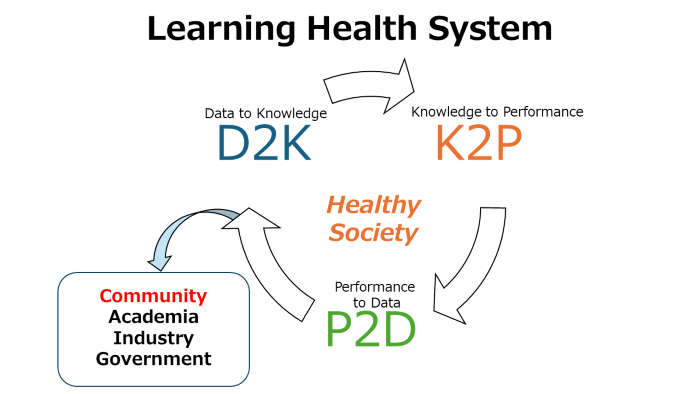【Research Keyword】
Big health data, epidemiology, statistics, data science, causal inference, behavioural science, clinical epidemiological research in hypertension, diabetes, chronic kidney disease and cardiovascular disease, epidemiological research, and genetic analysis for infectious diseases such as hepatitis virus and new coronavirus, international collaborative epidemiological research, blood services and blood donation promotion
【Recent highlights】
National Association Health Insurance Commissioned Research Project 'Strengthening evidence-based insurer functions: learning health system' 2021-2022, 'Behavioural insights to improve health outcomes through health services: application of causal discovery' 2023-2025.
AMED, 'Estimation of causal effects of dietary patterns and nutrients characteristic of the Japanese diet on health outcomes: a Mendelian randomised study using domestic and international genomic cohorts' 2023-2025
MHLW, 'Epidemiological study to contribute to the understanding of hepatitis virus infection status on a nationwide scale and to establish measures for viral hepatitis elimination' 2022-2024
JSPS Research Centre Formation Project 2021-2026

【Education】
The course provides systematic and practical education in the logic of epidemiology, biostatistics, and clinical research necessary for all healthcare professionals and those involved in health system. The goal is to acquire a research mindset, knowledge, and skills to apply what they have learned to their own use in clinical practice, health, administration, and research.
Students also acquire skills in presentation, publication, and communication to use the results of their research for the benefit of society through on the job training.
The Master of Public Health (MPH) is responsible for the fields of 'epidemiology' and 'biostatistics'.
The MPH is in charge of the subject 'Fundamentals and Practice of Clinical Research' in the postgraduate doctoral and master's programs and provides practical guidance on research planning for clinical research (including epidemiological studies and clinical trials).
【Research】
Our laboratory takes issues and questions extracted from the field of medicine, health, care, and administration as a starting point to generate evidence for scientifically high-quality epidemiological and clinical research that can be returned to the field.
For diverse health issues, we design and implement specific interventions (performance) based on knowledge gained from data, evaluate interventions in a scientific way and build a learning health system, which is a cycle of improving health system. In data analysis, we extend and apply causal inference and data science methods, and in intervention implementation, we collaborate with various clinical, behavioural, and industrial fields to present a new era of epidemiological research.
By combining large-scale data obtained from the real world with lifelog data obtained by digital devices in the field and genetic analysis conducted in the laboratory, we conduct epidemiological research that approaches causal effect and mechanisms. We will contribute to the health of Hiroshima Prefecture, Japan, and the world by developing and extending the research bases for epidemiological research, international collaborative research, and genetic analysis on infectious diseases such as hepatitis and COVID19 that have been established in our laboratory.



 Home
Home
